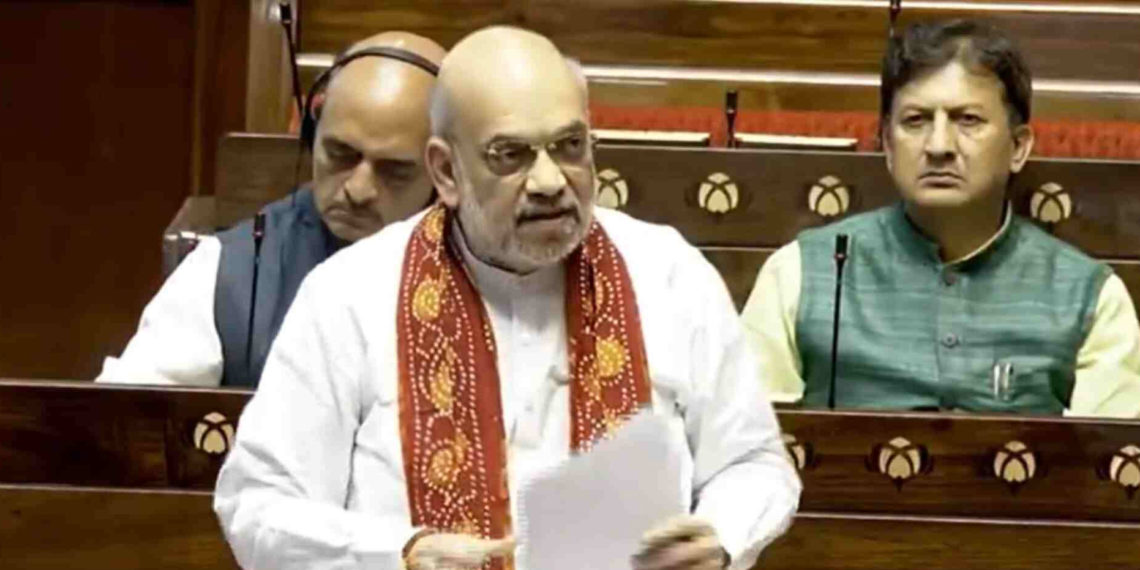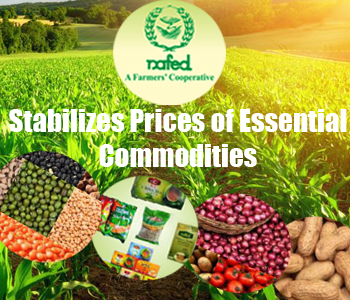In a comprehensive presentation in the Rajya Sabha, Union Minister Amit Shah touched upon several new initiatives undertaken by the cooperative ministry. It included “World’s Largest Grain Storage Plan in Cooperative Sector”, linking PACS with market, FPOs and the three national level multi-state cooperative societies; one each for Exports, Organic produce and quality seeds.
In his reply Shah said the Government has launched the “World’s Largest Grain Storage Plan in the Cooperative Sector” as a pilot project to address the critical shortage of storage capacity for food grains in the country. This ambitious plan, announced on May 31, 2023, aims to develop agri-infrastructure at the Primary Agricultural Credit Societies (PACS) level, encompassing warehouses, custom hiring centers, processing units, and Fair Price Shops.
The initiative integrates several existing government schemes, including the Agriculture Infrastructure Fund (AIF), Agricultural Marketing Infrastructure Scheme (AMI), Sub Mission on Agricultural Mechanization (SMAM), Mission for Integrated Development of Horticulture (MIDH), and Pradhan Mantri Formalization of Micro Food Processing Enterprises Scheme (PMFME).
The implementation of this plan is being overseen by the National Cooperative Development Corporation (NCDC) with the support of the National Bank for Agriculture and Rural Development (NABARD), NABARD Consultancy Services (NABCONS), Food Corporation of India (FCI), and National Buildings Construction Corporation (NBCC) across various states and Union Territories. The project’s cost varies based on regional factors such as topography, labor costs, and the specific infrastructure components chosen by PACS.
Key benefits of the decentralized storage facilities include enabling farmers to store their produce, access bridge finance for the next crop cycle, and sell their products at optimal times or directly to PACS at the Minimum Support Price (MSP). This system also aims to reduce post-harvest losses, improve farmers’ incomes, and enhance market access through a streamlined food supply management chain. By functioning as both procurement centers and Fair Price Shops, PACS will also reduce transportation costs, further supporting India’s food security.
Complementing this initiative, the Ministry of Cooperation, in collaboration with the Ministry of Agriculture and Farmers Welfare, has set a target to establish 1,100 additional Farmer Producer Organizations (FPOs) under the Central Sector Scheme for the formation and promotion of 10,000 FPOs.
These FPOs, formed from existing PACS members, are crucial for providing market linkages, financial support, and training, thereby ensuring better prices for farmers and enhancing the business operations of PACS. The government offers substantial financial assistance, including up to Rs. 33 lakh per FPO and Rs. 25 lakh per Cluster Based Business Organization (CBBO) for promotion and support. Additionally, matching equity grants and management cost support aim to increase the viability and sustainability of these organizations.
To bolster the cooperative sector further, the government has established three national-level multi-state cooperative societies: National Cooperative Exports Limited (NCEL), National Cooperative Organics Limited (NCOL), and Bharatiya Beej Sahkari Samiti Limited (BBSSL).
NCEL focuses on increasing the export of cooperative goods and services, while NCOL supports the organic produce sector through comprehensive institutional support. BBSSL aims to enhance the production, procurement, and distribution of quality seeds, reducing dependency on imports and promoting indigenous varieties.
These initiatives, spearheaded by the Ministry of Cooperation under the guidance of Minister Amit Shah, represent a significant step toward strengthening India’s agricultural infrastructure, ensuring food security, and promoting sustainable economic growth in rural areas.
The strategic focus on cooperatives and FPOs underscores the government’s commitment to empowering farmers and achieving self-reliance in agriculture, aligning with the broader vision of Atmanirbhar Bharat (self-reliant India).














































